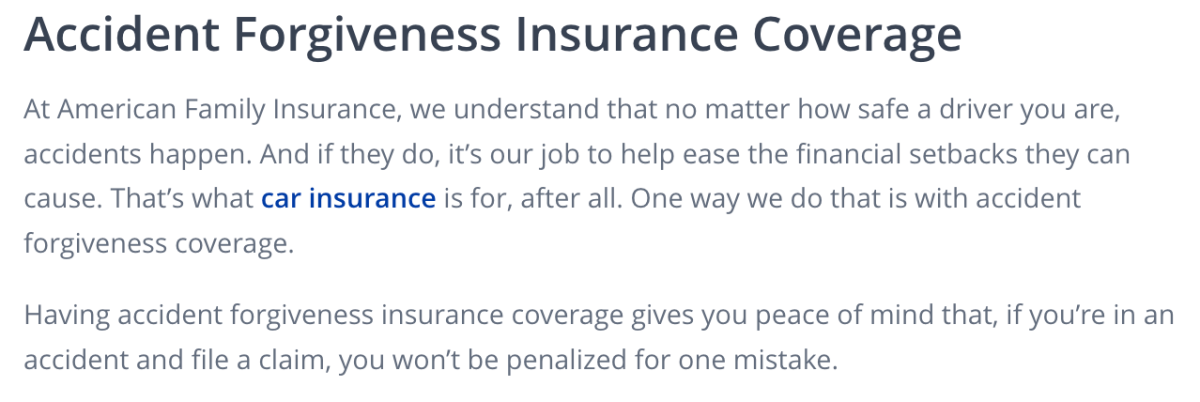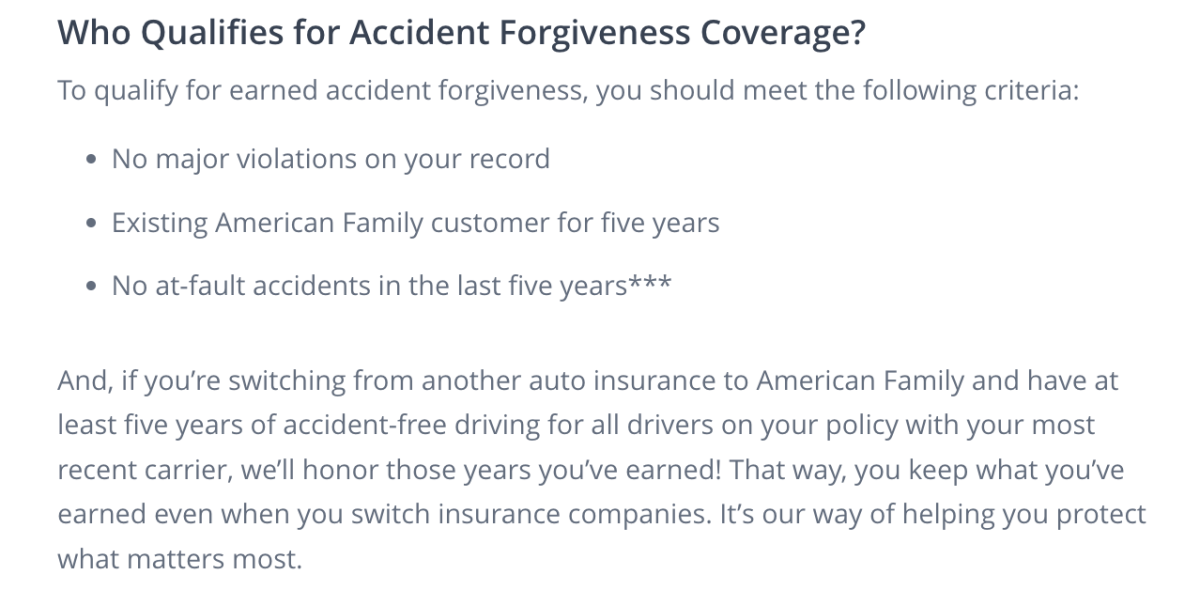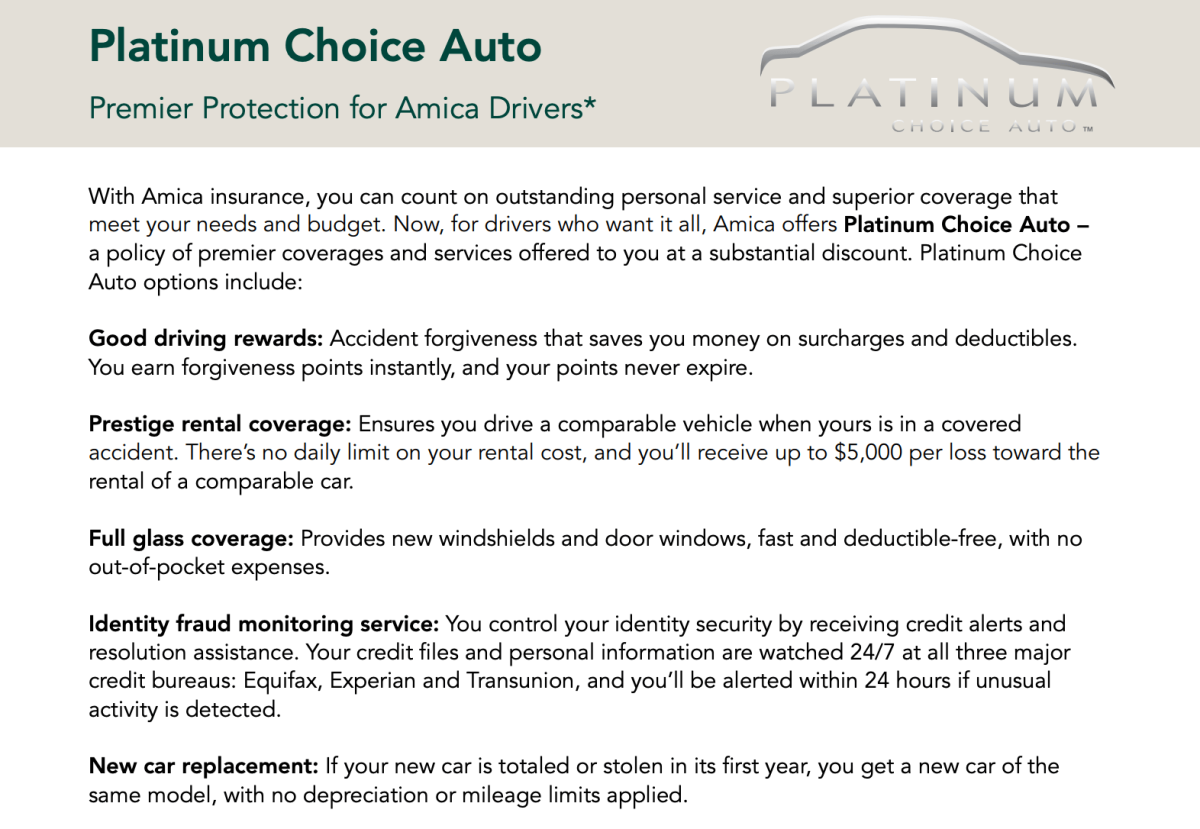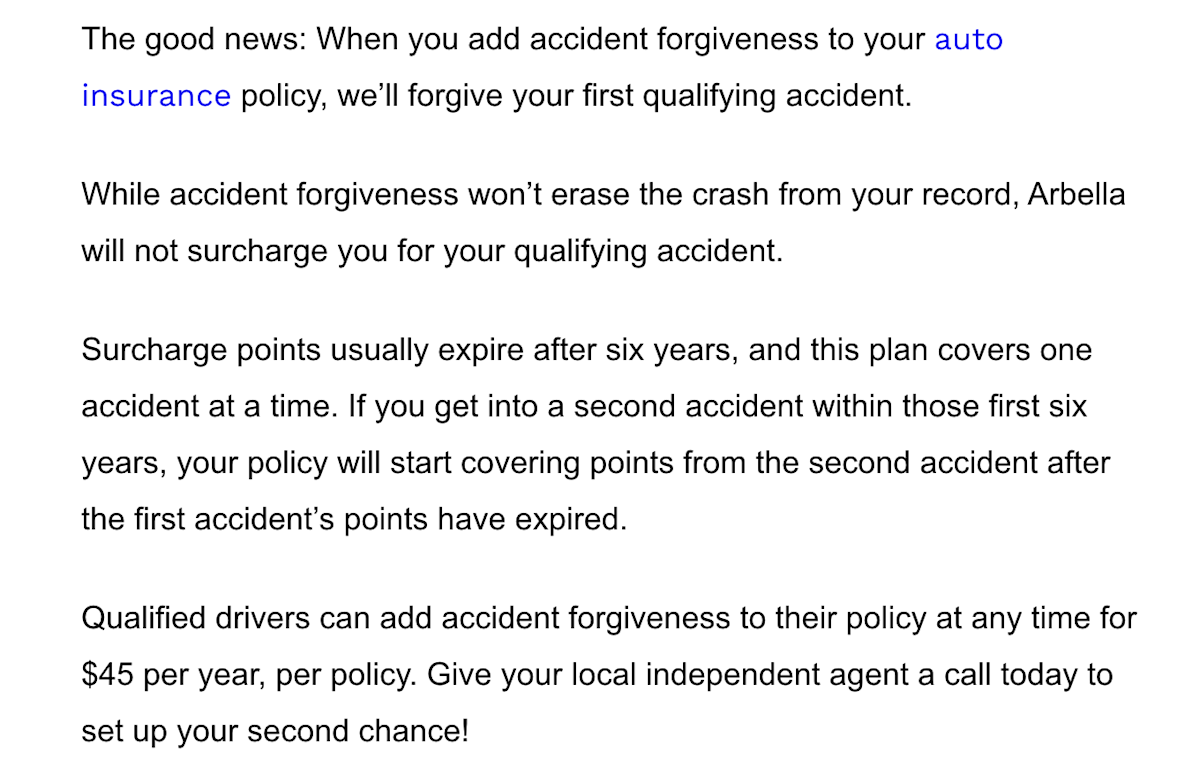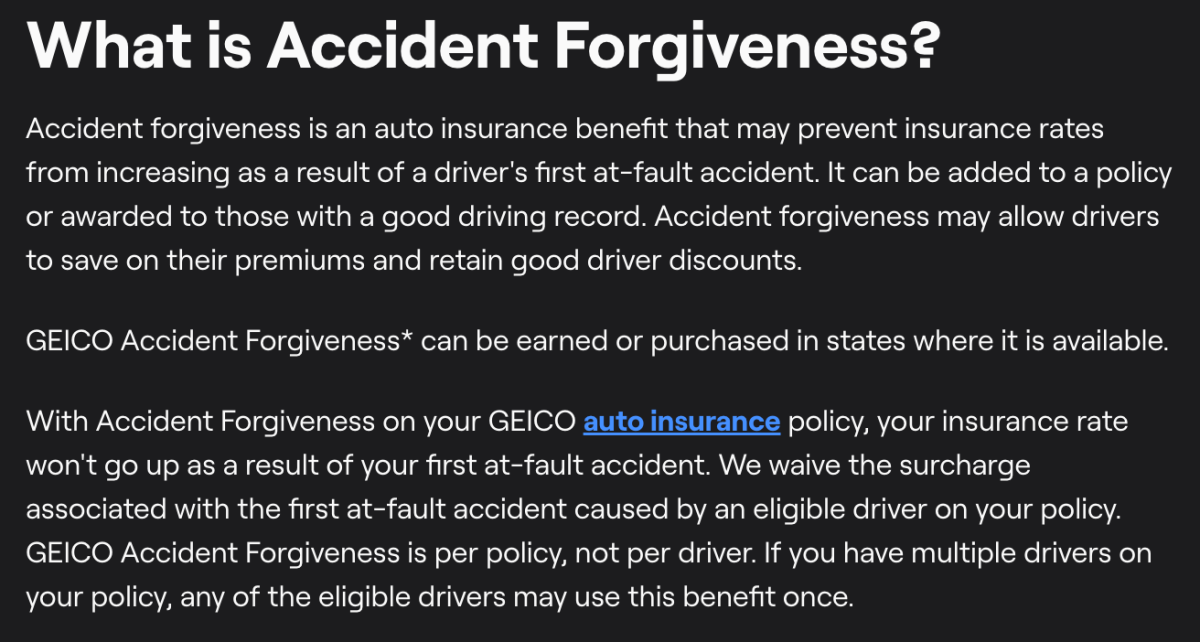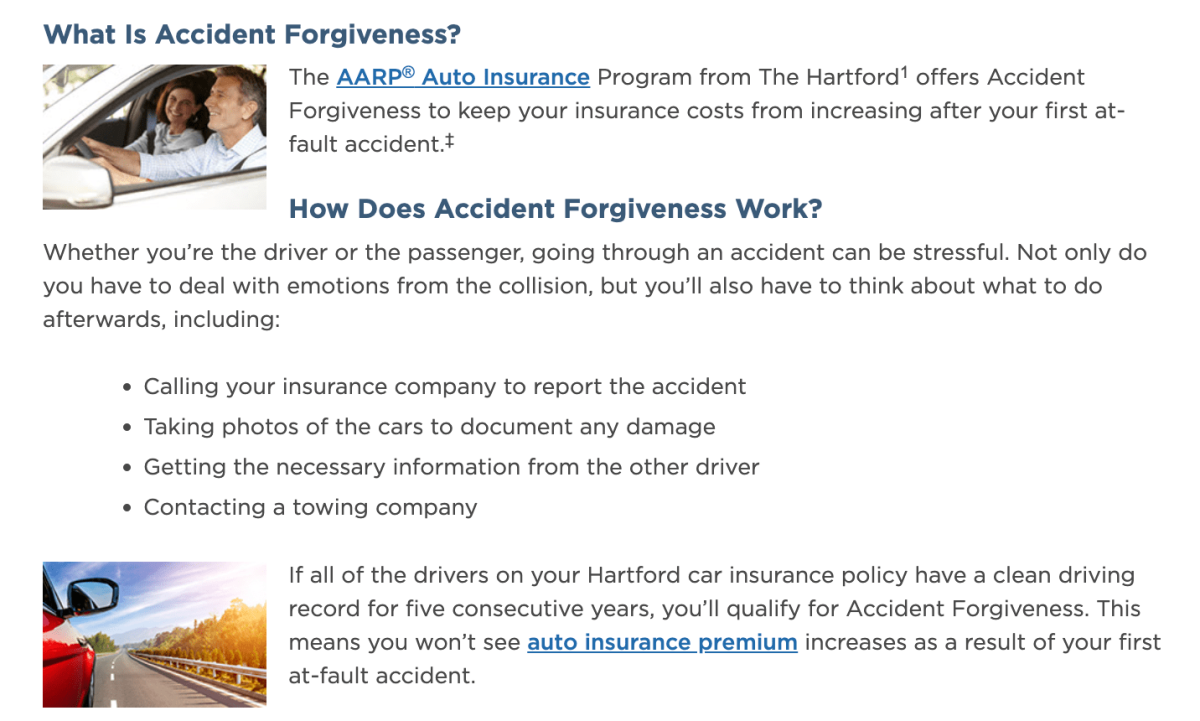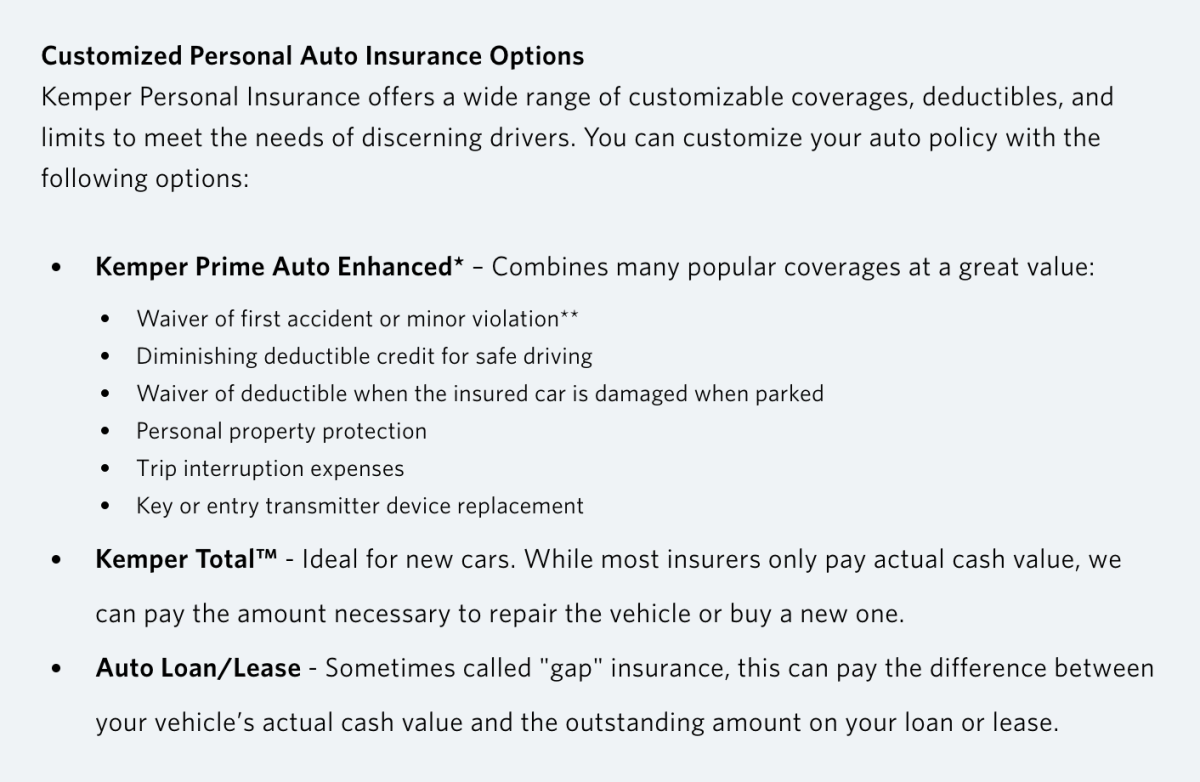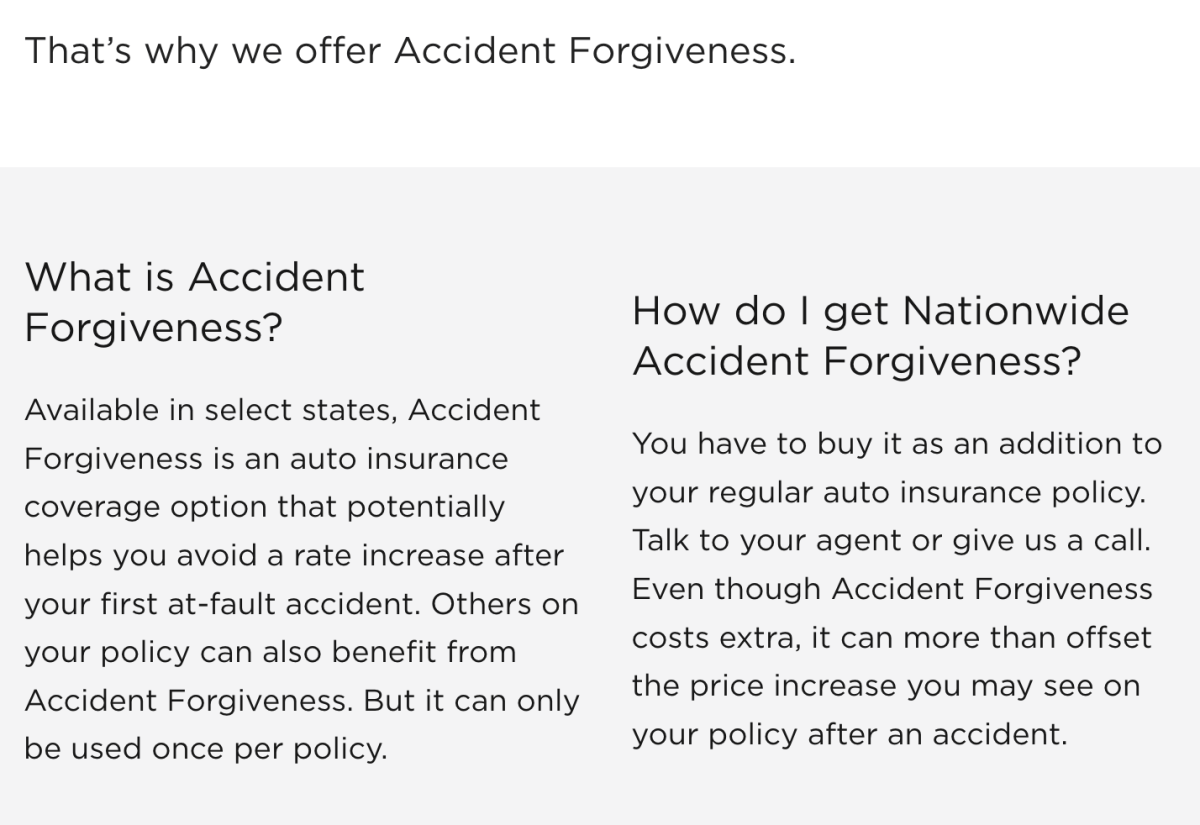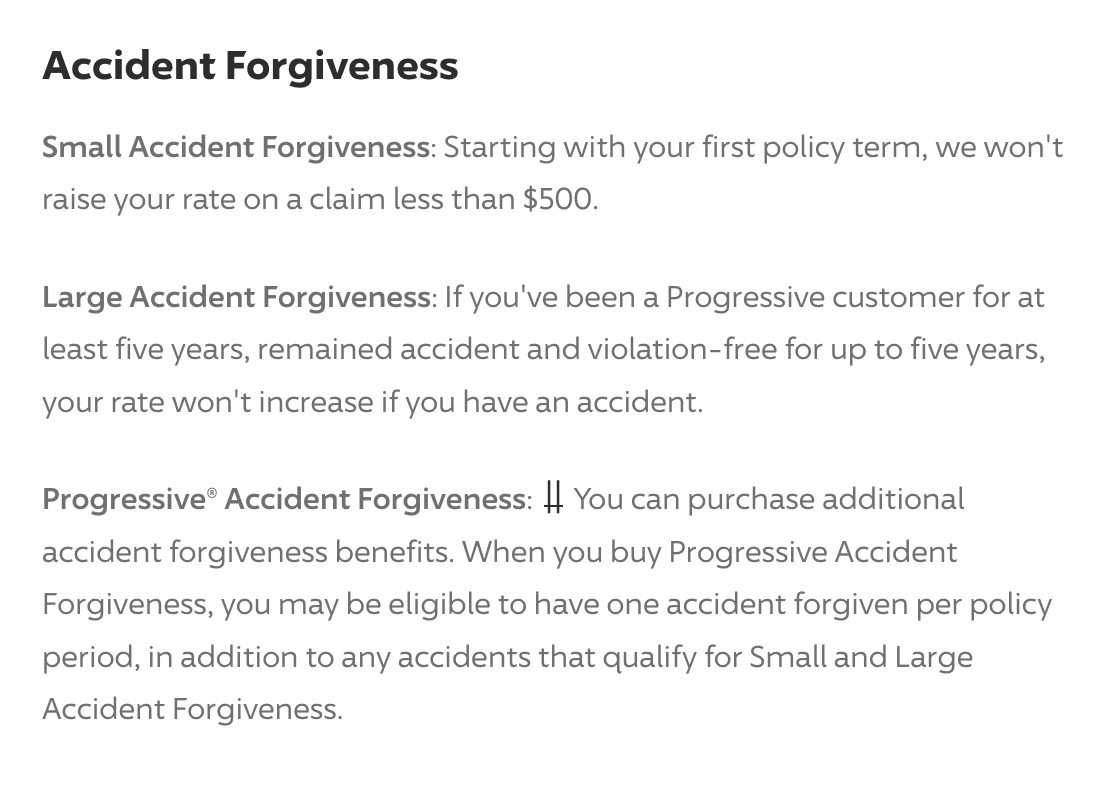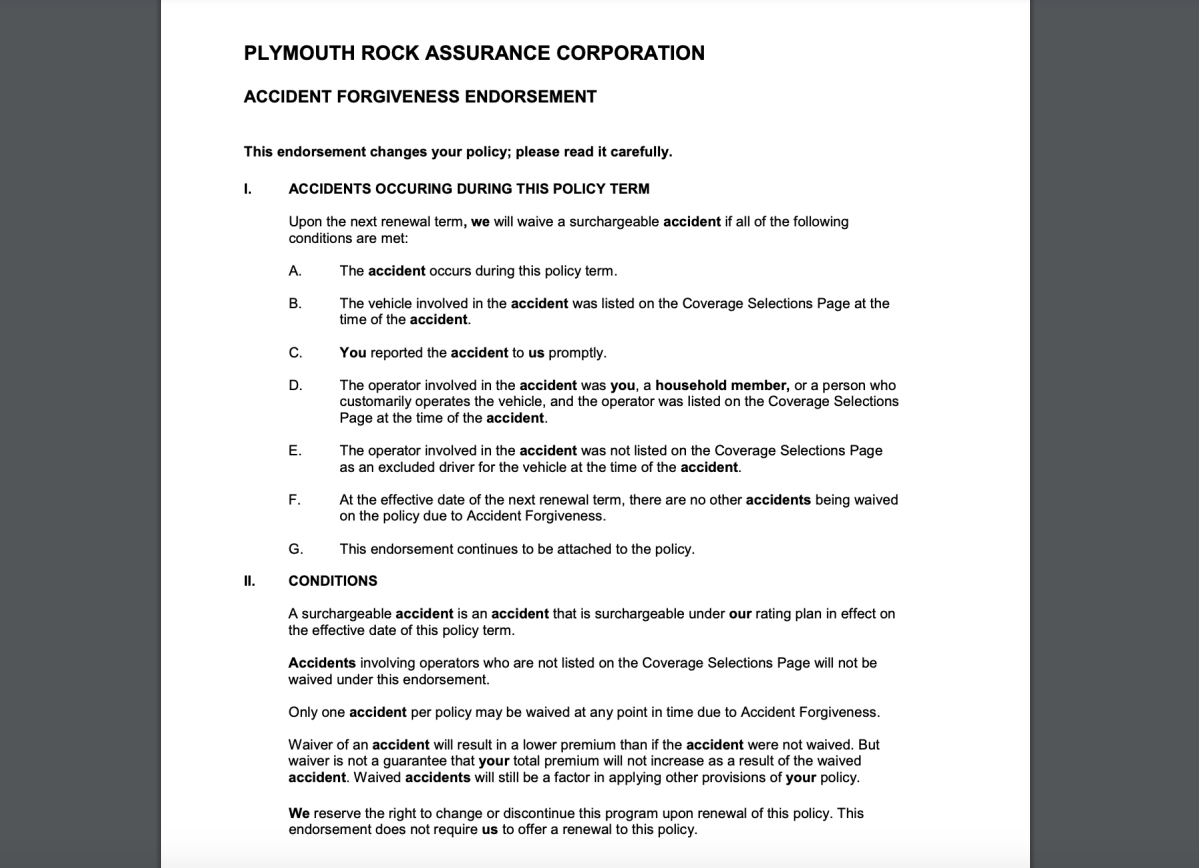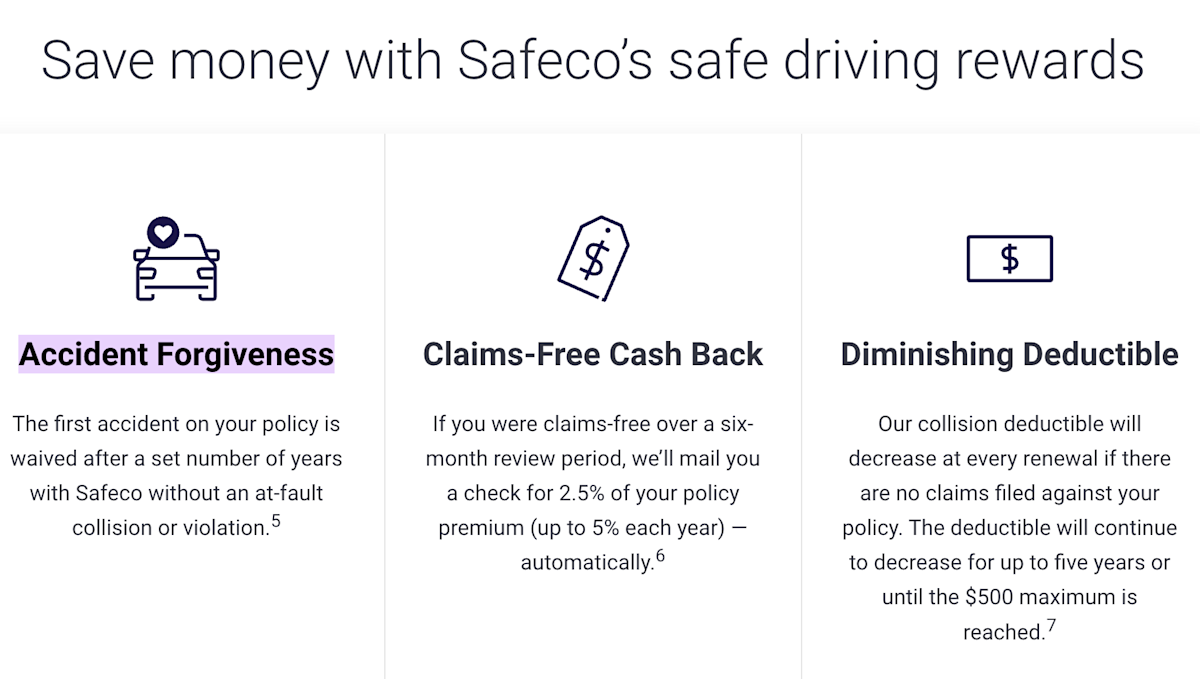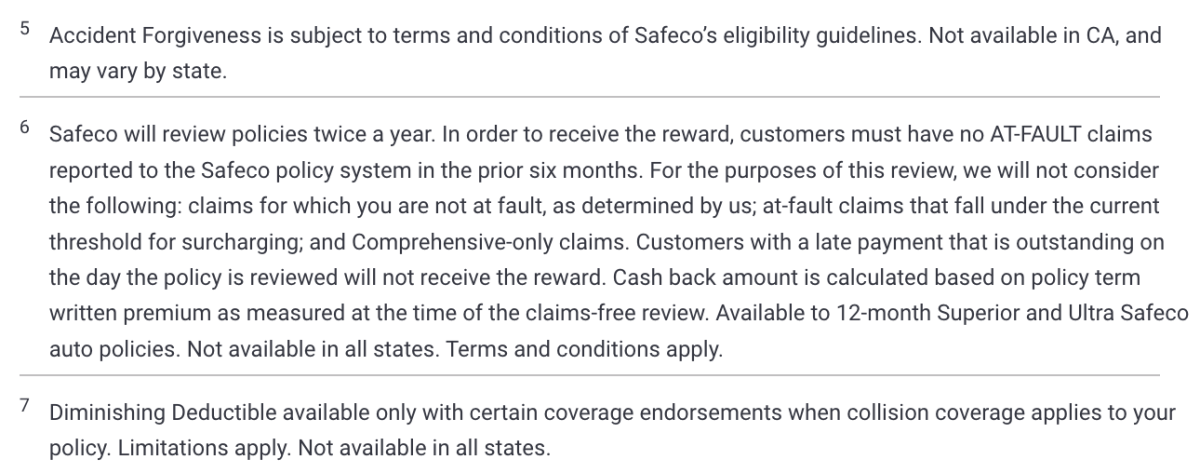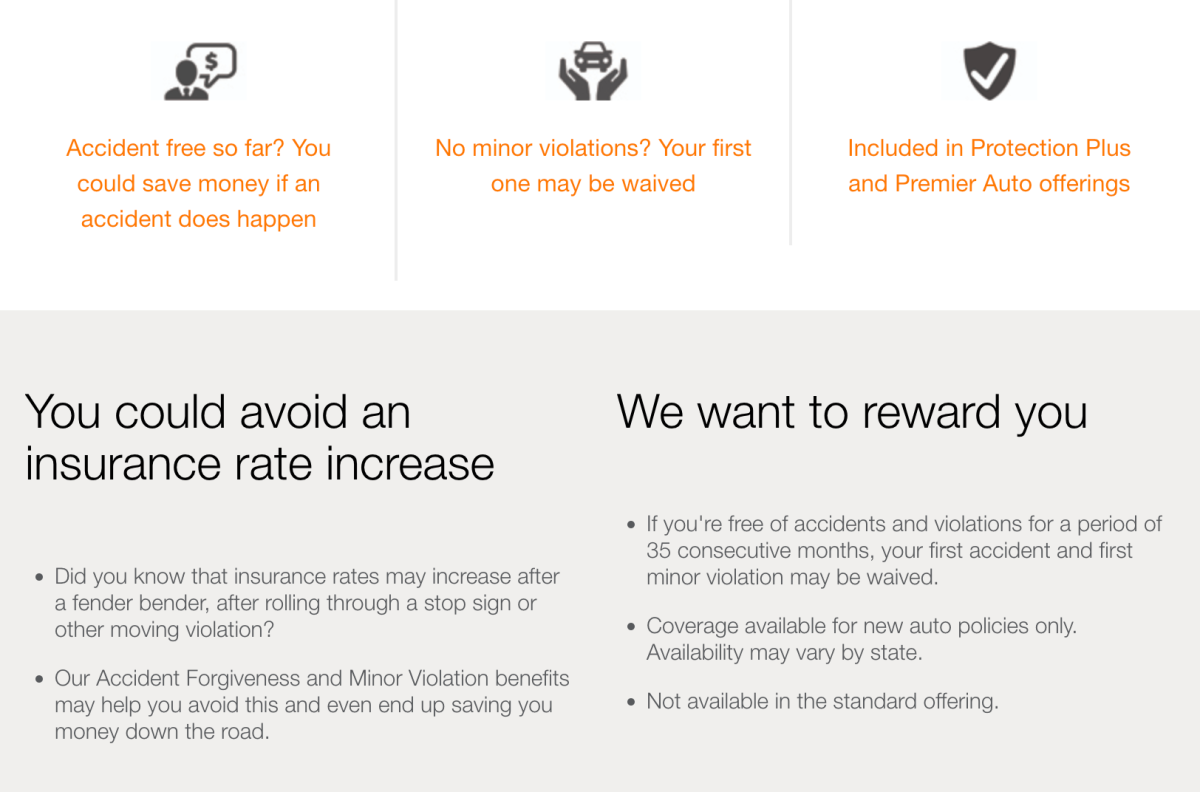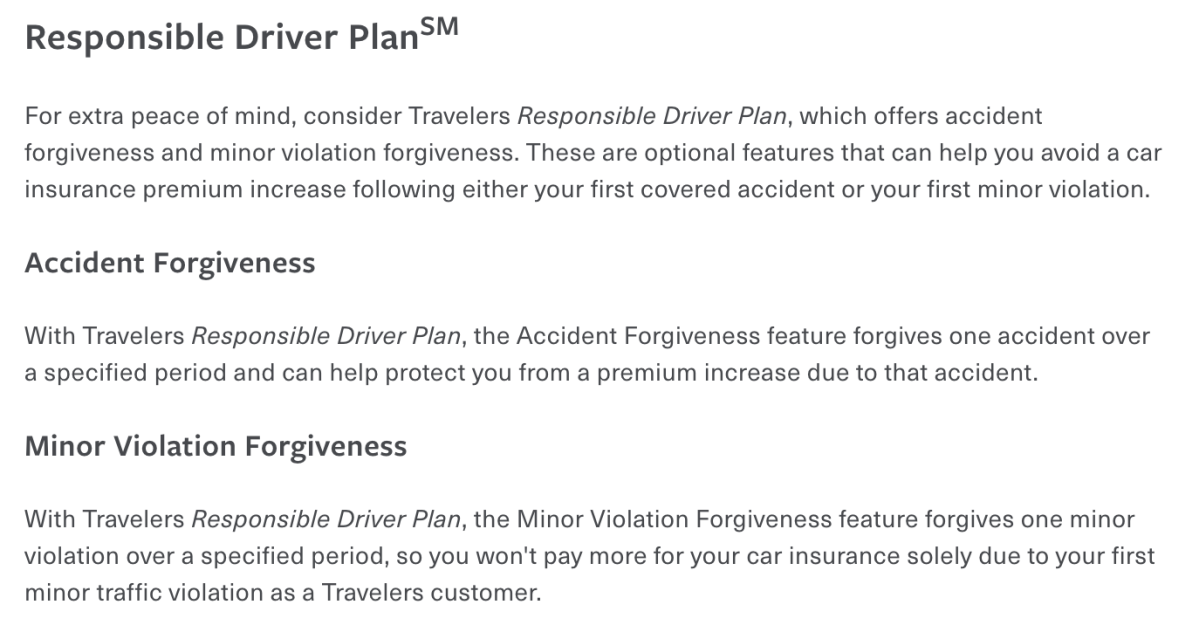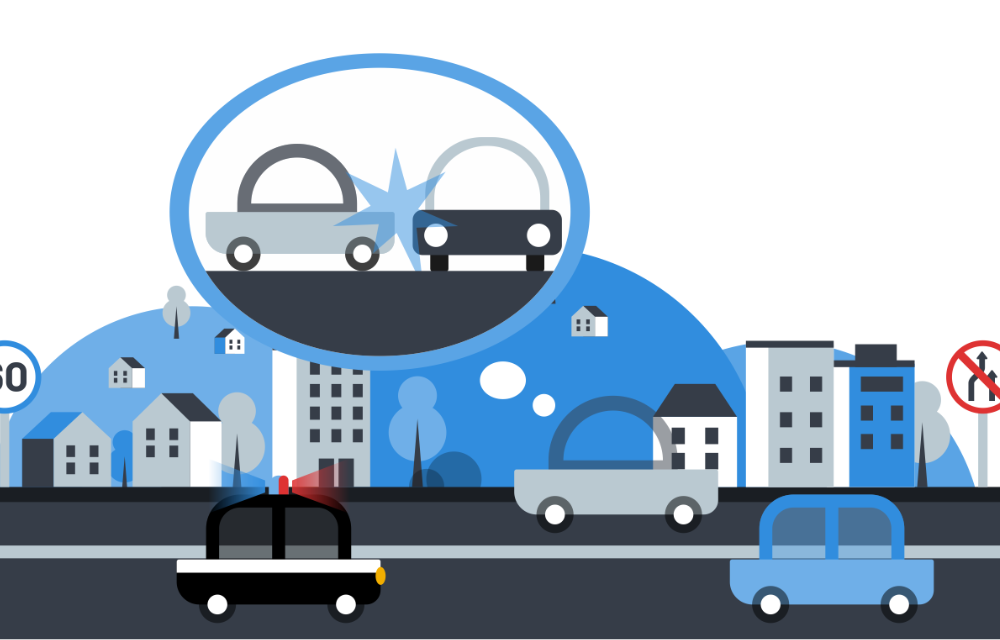
Insurance Impact of Car Accidents + Is Forgiveness Worth It?
TABLE OF CONTENTS
Driving can be risky, and some drivers pose a greater danger than others. Requiring drivers to have insurance to cover damages to others is a way to shift the burden onto dangerous drivers through higher premiums on their insurance policies. This protects innocent victims from financial ruin. But what exactly are the effects of car accidents on insurance? In short, they can temporarily raise your rates. But are insurers' offerings of accident forgiveness worth it?
Globally, car fatalities now account for the number one cause of death for people aged 5 to 29.1 In this article, we'll examine the impact of these accidents on insurance policies. We'll look at how long they stay on your record and their effect on the cost of your insurance. We'll also consider "accident forgiveness" programs offered by insurers and whether they are worth considering when shopping for insurance.
KEY TAKEAWAYS
- 1
In a no-fault state, each driver files a claim with their own insurance, but there are exceptions.
- 2
The duration of how long accidents affect insurance rates varies by state and insurer, but usually falls off after 3-5 years.
- 3
The amount of an insurance premium increase after an accident depends on various factors such as severity, driving history, and fault.
How long do accidents stay on your insurance record?
There is no single answer when it comes to how long traffic accidents continue to affect insurance rates. The duration varies by state and insurer. That said, three to five years is the most common window.2 After that, an accident will no longer affect premiums. You can always ask an individual insurer in your state how long they consider them for a precise answer.
The difference in premium can be significant. While accidents can impose a surcharge on your rate, being accident-free after a certain number of years can provide a discount.3 Thus, if a driver has an accident, their base yearly $1000 premium could go up 40% to $1400. Once the accident is 3 years old, that surcharge falls off, and a 10% discount could apply, moving the rate to $900, a total difference of $500 per year.
Further, many insurers also provide more significant discounts at certain intervals past the 3-year window. State Farm in Arizona, for instance, provides discounts at 3, 6, and 10 years with discounts ranging from 15% to 25%.
If I get in an accident will my rates go up?
When you make a claim, a premium increase is possible, though not guaranteed (see below).
Or, if you don’t make a claim, but the police file a report, your insurer may access this data. If they do check your record when it comes time to renew, they may choose to raise your premium.
They don’t always check because doing so costs them money. So, a rate increase isn’t assured but is possible.
For more on making (or not making) a claim after an accident check out our guide on
Regardless of whether you make a claim, there are a few factors at play that determine if and how much your rates will change.4 The primary one is the severity of the accident. A minor fender bender does not receive the same treatment as a major collision.
Also taken into consideration is driving history. Someone with a sterling record over the past decade is likely to receive lenient treatment. A driver with many accidents, not so much.
The third major component is fault. As may be obvious, a driver who is at fault for an accident is far more likely to suffer consequences with their insurer. Particularly if they were driving fast or while impaired. In a no-fault state, this doesn’t apply, as each driver uses their own insurer to make a claim, as opposed to using the insurer of the driver at fault. This also means that it’s more likely both drivers will see a rate increase, though the severity and driving history can still influence that.
One saving grace is that many insurers offer what’s known as “accident forgiveness.” This perk is generally earned, or sold as an add-on to an insurance policy. As the name implies, this serves as a get-out-jail-free card for a first accident and claim. See below for a comparison of the different accident forgiveness options available and look at whether it’s worth it.
How much does insurance go up after an accident?
The amount varies based on the state, insurer, severity, driving history, and fault. According to a study conducted in 2017, for a first-time accident with a $2000 claim, a driver can expect a 44% increase to their premium on average (up 6% since 2014).5 For a second accident, this jumps to an average of 99% increase (up 13% since 2014). In times like these, accident forgiveness can prove very worth having.
But the study notes that in a fault-based state, this isn’t the case. Instead, rates are much less likely to rise if you’re not to blame for the accident since the other driver’s insurance will pay the claim.
Bodily injury tops the chart, causing rates to go up by 48.6% on average. Property damage follows close behind with an average increase of 44%. In comparison, comprehensive claims have much less effect with average increases of only 2%. This is because comprehensive claims tend to cost the least, and are generally caused by things outside of the driver’s control.
The top five states for premium increases:
California, New Hampshire, Texas, Massachusetts, and North Carolina.
They have average increases of 57-63% for a first accident.
On the flip side, the most lenient states:
Maryland, Michigan, Oklahoma, Montana, Kentucky,
They have average increases of only 21-30%.
Is Accident Forgiveness worth it?
Assuming it’s not included for free, the question becomes 1. how much extra will it cost per year and 2. how likely is an accident to occur?
By what percentage will that increase the yearly premium? If it’s a $1000 premium and the add-on costs $50 per year, that’s a 5% surcharge. Consider that the average surcharge for a $2000 claim is 44%. That bumps the annual premium to $1440. The surcharge remains for at least 3 years generally, so that’s an extra $1320 in the premium over that time. You’d have to pay the $50 for 26 years to match that expense.
What are the risk factors? Do you have teen drivers or have a history of accidents yourself? Do you live in a place with twisty and windy roads or weather that can get icy and dangerous in the winter? Is your driveway back out onto a busy street? Weigh considerations like these. The more risks that apply, the more likely accident forgiveness may be worth it.
Keep in mind that accident forgiveness coverage follows the policy, not the driver. But accidents follow the driver, not the policy. In other words, if you get in an accident your insurer won’t increase your rates because of forgiveness. But that doesn’t mean the accident isn’t on your record. So, if you then try to shop for a policy with a different insurer, they will likely take that accident into account, and raise your premium.
Furthermore, if you get into a second accident, even the company you’re with may count the first one. Thus, when determining the increase in your premium they may bump up your rate by 99% instead of 44%.
Accident Forgiveness Carrier Comparison
Note: due to state law, none of these options are available in California.
Allstate
Allstate’s accident forgiveness endorsement used to be available with a purchase of an upgraded YourChoice auto policy. When we checked before, with the gold plan, the driver needs to go three years without an accident. With platinum, the benefit kicks in immediately.
Now, however, it appears to be a stand-alone addon; a welcome change. Though it's hard to judge its value without knowing even an estimated cost. To their credit, as with some other programs, Allstate does offers diminishing deductibles and cashback programs for free, which lower your collision coverage out of pocket costs the longer you go without an incident, and pay you back an (unstated) bonus each accident-free policy term.
American Family
American Family’s accident forgiveness program is two-fold. One way is earned by being accident-free for at least five years. The other is offered as paid version that's available only at renewal, and which is automatically removed from your policy once you've earned into the free version after five years. Unlike some, they will honor a five year accident free streak from a prior insurer to qualify.
Amica
Though oddly not mentioned clearly on their website at last look, Amica does offers accident forgiveness through their optional “Platinum Choice Auto” package (not available in all states). Their system is somewhat unique in that drivers earn “points” that can keep rates steady after a claim, or reduce/eliminate your deductible. These points come from steps like renewing existing policies, referring others to Amica, or completing a year of good driving (with more points earned with more vehicles on the policy).
It's a program with some nice features, particularly full glass replacement with no deductible, and comparable rental cars when yours is out of commission. However, Amica (like others) doesn't publish an average cost, or range of prices, so it's hard to truly judge whether it's worth considering. To their credit though, they do publish at least some fine-ish print on Platinum Choice details:
Arbella
Arbella's program allows qualified drivers to add accident forgiveness for $45 per year per policy. They use a system of “surcharge points” that raise your premiums based on how many you’ve earned. So in this case, the forgiveness waives the points you would have earned from the accident.
While their program does cost money, they deserve credit for publishing the cost up front, allowing users to do the math for themselves on whether they think it worthwhile.
Erie
Erie’s accident forgiveness offering is available after you’ve been a customer of theirs for at least three years (in applicable states). Obviously, this kind of no-cost accident forgiveness is the most worth it. As with some others carriers, they also offer a paid diminishing deductible program. A nice option to have but not as nice as free ones such Safeco's.
Farmers
If you qualify for Farmers' accident forgiveness program, they will forgive one accident every three years. Unfortunately, they don’t specify how to qualify. This benefit applies regardless of who is driving or who is at fault.
Geico
Geico’s accident forgiveness is available in two ways. Either as a buyable addon (in some states) or as free for drivers who have been accident-free for five years. Having this coverage also protects the driver from losing any good driver discounts that may be in effect, but that's true for most of these programs. The coverage is per policy, so any of the eligible drivers may use this benefit once. Not available in California, Connecticut, or Massachusetts. It may also not apply to drivers under the age of 21.
The Hartford
Accident forgiveness with The Hartford is free, but only available as part of their AARP® Auto Insurance Program. To you must be a member of AARP and all drivers on the policy must be accident and violation-free for five years.
Kemper
Kemper's accident forgiveness cannot be acquired as a stand-alone option. It is only available as part of their Prime Auto Enhanced coverage. Aside from protecting against premium increases from your first at-fault accident (varies by state), it also provides:
A diminishing deductible based on continued safe driving
A waiver of deductible when a vehicle is damaged while parked
Personal property protection
Trip interruption costs
Key or entry transmitter replacement
Liberty Mutual
Liberty Mutual offers accident forgiveness upon enrollment to drivers who have been accident and violation-free for five years. This applies even if you are insured with someone else during that time. Some restrictions apply.
Nationwide
Nationwide’s accident forgiveness endorsement has to be purchased, and can only be used once per policy. As with many other insurers, they provide an accident-free discount that kicks in after five years which can offer up to 10% savings. If you add more than one vehicle, the savings could rise to 20%.
Progressive
Progressive’s forgiveness offering has three components. Like some others, they have a free earned forgiveness by being accident-free for five years, though it only counts the years you’ve been with Progressive. To their credit, they also offer a smaller form of accident forgiveness for free as soon as you sign up, by promising not to raise rates if an accident claim is less than $500. In certain states, they also have a paid option that offers extra forgiveness benefits though don't state how much it is.
Plymouth Rock
Plymouth Rock’s accident forgiveness coverage is available for sale as an optional add-on. Their terms may differ by state, but at least in Massachusetts they make clear that it is conditional upon the driver fulfilling certain criteria such as prompt reporting and only having named insured be eligible. They also make it clear that while the forgiveness will protect against some increase in your insurance price, your price still may go up a little bit:
Waiver of an accident will result in a lower premium than if the accident were not waived. But waiver is not a guarantee that your total premium will not increase as a result of the waived accident. Waived accidents will still be a factor in applying other provisions of your policy.
Safeco
Safeco offers accident forgiveness as part of its “Safeco Safety Rewards” program. This applies after being free of violations or at-fault accidents for a certain (unstated) number of years. In a similar safe-driving vein they also offer up to 5% cash-back per year that you don't have accidents. In some states they also offer a diminishing deductible on your collision coverage. Over a period of up to 5 claim free years, they gradually reduce your collision deductible to an eventual max of $500 off a claim. Overall a good value since the programs seem to have extra costs, unlike others.
As in most cases with these programs, there is fine print. While Safeco doesn't clearly publish their full terms by state for accident forgiveness, they do provide some details on their cash back program:
State Auto
State Auto’s accident and violation forgiveness endorsement comes only as a part of their optional "AutoXtended® Plus" and "AutoXtended® Premier" paid packages. Last we checked, this benefit applies if you’re accident and violation-free for at least 35 months, and as is generally the case, availability varies by state. As a perk, their program includes forgiveness for other "minor violations" outside of car accidents, though they do not specify details.
Travelers
Travelers' “Responsible Driver Plan” offers forgiveness both for accidents and minor violations. These two features will protect against premium increases once every 36 months. They also have a “Premier Responsible Driver Plan®” which includes forgiveness along with a decreasing deductible and total loss deductible waiver. Last we checked, the decreasing deductible will provide a credit of $50 every six months (up to $500). This applies towards a covered loss, while their total loss deductible waiver will waive the deductible entirely if you wreck your car. Like many, Traveler's does not publish even a range of prices for these packages, so their true value is difficult to weigh.
- World Health Organization (n.d.) Global status report on road safety 2018. Global Report. Retrieved January 16, 2023, from https://www.who.int/publications/i/item/9789241565684
- American Family. How Much Does Insurance Go Up After an Accident? Understanding Insurance. Retrieved January 16, 2023, from https://www.amfam.com/resources/articles/understanding-insurance/how-much-does-insurance-go-up-after-an-accident
- Rejda, George; McNamara, Michael. Principles of Risk Management and Insurance (12th ed.). Upper Saddle River, NJ: Pearson Education, Inc. ISBN 978-0-13-299291-6.
- Allstate. (2022, April) Will my car insurance rate increase after an accident? Car Insurance Resources. Retrieved January 16, 2023, from https://www.allstate.com/resources/car-insurance/do-rates-increase-after-accident
- Insurance Quotes. (2017) Filing an Auto Insurance Claim? Expect a Big Spike in Your Premium. Retrieved January 16, 2023 from https://www.insurancequotes.com/auto/auto-claims-rate-increase-22817
TABLE OF CONTENTS


Trying to find the best insurance?
We'll help you find the policy that offers the best value for your situation.
Further Reading

Navigating the Digital Insurance Landscape Considerations
A look at the immense value and high customer lifetime potential within the insurance sector.
Read article

When is Term Life Insurance Worth it?
Decide if term life's advantages are worth it: compare whole vs term life insurance, assess top term providers, and delve into in-depth reviews.
Read article

Insurance Binder: Bridging Between Coverage and Confirmation
From car loans to rental properties, insurance binders are required in a variety of situations. Discover the ins and outs of these essential documents.
Read article

Haven Life Review: Providing Prudent and Protective Policies
Uncover the benefits and drawbacks of Haven Life's term insurance policies, along with eligibility details, pricing, and customer feedback..
Read article
Start Comparing Quotes
Search from our learning center to learn everything from how to easily switch your car insurance to the ins and outs of home insurance.
Fill out just one form and get multiple quotes!



